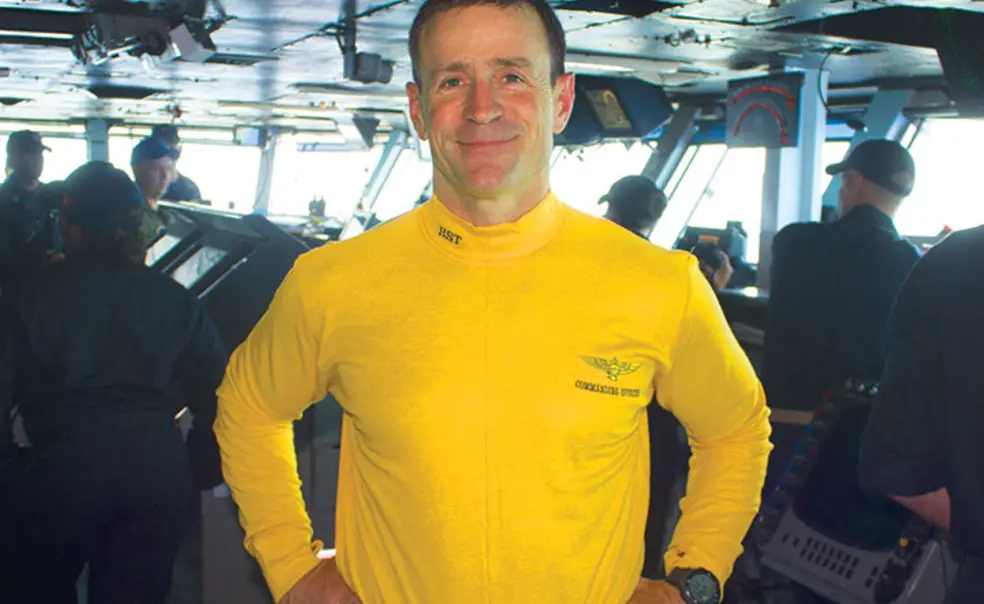Capt. Ryan Scholl ’87 is sitting back in the captain’s chair on the bridge of the aircraft carrier USS Harry S. Truman in the Atlantic Ocean, with a crew of about 5,000 running checks ahead of a deployment. It’s a summer night, almost fully dark, and Scholl is watching fighter jets take off and land on the deck below. The bridge is quiet, with only the crackle of radios and crew members calling out navigation directions. Deep in the bowels of the ship, a team produces steam for the catapults that fling the planes off the ship. Sailors on deck communicate plane weights to air crews who calculate catapult pressures. Too little or too much, and a plane could end up in the ocean. “There are a lot of things that have to happen in synchronization,” says Scholl, who took command of the Truman in February 2015. Last November, the ship began a seven-month deployment to the Middle East to fight ISIS.
Inspired by the movie Top Gun, Scholl, an electrical engineering and computer science major, joined the Navy right out of Princeton. He trained as a fighter pilot and eventually flew with the Blue Angels, the Navy’s elite flying demonstration team. In 2004, he led a squadron over Iraq. Four years ago, he took command of his first ship.
Scholl joined the Navy for the adventure — “I was looking for something more exciting” than a traditional career, he says — but over time, the leadership and mentoring aspects of the job increasingly called to him. “You see all these folks who sign up to serve,” he says. “They’re signing up to make a difference, to serve a greater cause.” Scholl demurs when asked whether he’d like to go on to become an admiral. Those decisions are made by the leaders above him, he says. “I will do my best at whatever they want me to do.”












No responses yet